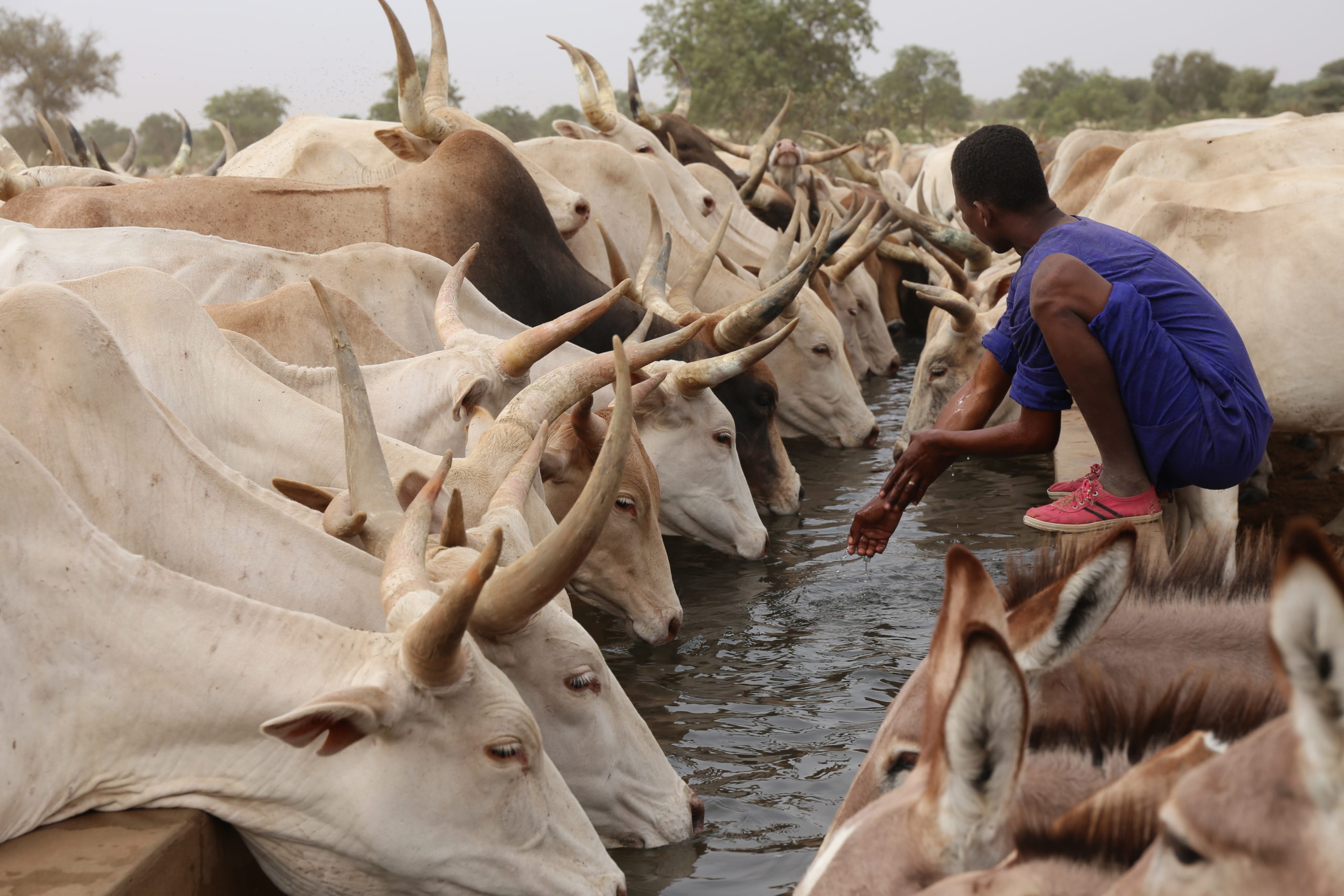The importance of innovation for livestock in African AgriFood systems

Collaboration between organisations in the UK and Africa is helping to drive innovation to support African livestock systems.
Livestock is a vital component of African AgriFood systems. Here we look at why it is so important and how UK-Africa collaboration is supporting innovation to address key challenges within the sector.
To support further collaboration in this area, Innovate UK KTN is launching a new round of Innovation Awards as part of the AgriFood Africa Connect programme.
If you care about the poor, you should care about agriculture. And if you care about agriculture, you should care about livestock.
– Bill Gates (CGIAR)
Why Livestock are important in African AgriFood production systems
The Food and Agriculture Organization of the United Nations (FAO) states that the future of African livestock will influence the development of the entire continent.
Small-scale agriculture supports more people than any other activity, producing 70% of the world’s food: in developing countries, there are around 500 million small farms which support almost 2 billion people (GALVmed). These farmers are largely poor, but livestock are an essential part of their wealth.
In Tanzania, for example, a chicken is typically worth $3, a goat $46 and a non-dairy cow $310. The average smallholder owns a few of each of these animals, enabling them to fund essentials like housing, clothing, education and health (GALVmed). Income from Livestock is the key factor enabling girls in Africa to attend school (ILRI).
African Livestock production challenges
Africa’s population is predicted to double to 2.5 billion between now and 2050, with a simultaneous growing demand for animal products. This significantly increased demand on African Livestock production presents potential challenges, including outbreaks of zoonotic diseases, inappropriate production practices that pollute soil, water and air, and small farmers being forced out of the livestock sector (FAO).
Moreover, climate change has an ever-growing impact on Livestock production. According to the International Livestock Research Institute (ILRI), climate change threatens Livestock production through increasing heat stress and vulnerability to diseases, whilst reducing the availability of feed and forage production, grazing land and water.
Though the world already possesses technologies to improve Livestock health, there is a data gap in terms of targeting interventions for the wide variety of diseases that afflict livestock (SEBI). Building a stronger information ecosystem is vital to maintaining livestock health and, consequently, the livelihoods of farmers in Africa. The FAO summarises the major challenges affecting livestock in Africa as:
- Nutrition, water, and feed supplies
- Undeveloped breeding and livestock management
- Poor infrastructure
- Disease
- Impacts of climate change
These challenges require innovation so that Africa’s AgriFood system can become more efficient, more inclusive, more resilient, and more sustainable.
Innovation and collaboration opportunities
The need for a new climate smart approach to livestock farming will help drive the use of innovative technologies in Africa, with digital and smartphone-based technologies providing vital but often simple improvements for farmers.
Genetic improvement is increasingly included as part of many African countries’ livestock development programs (Frontiers). These often include collaborations with UK businesses and research organisations which have already proven highly successful, including with the African Animal Breeding Network.
Several health and welfare programmes are already providing significant improvements to livestock farming in Africa (e.g. ALPHA (African Livestock Productivity and Health Advancement)) but more transfer of knowledge is needed, and new collaborations could help to accelerate progress in the field of livestock health.
Showcasing successful UK-Africa collaborations on livestock
UK-Africa collaborations can play a vital role in increasing the resilience and productivity of African Livestock farmers by accelerating the adoption of modern technologies.
Through the GCRF AgriFood Africa programme, Innovate UK has so far delivered over 40 successful UK-Africa collaborative projects focused on livestock. You can read more about some of these projects here, and we have highlighted two projects below.
The WELL-COW project, a collaboration between Scotland’s Rural College (SRUC) and the Tanzanian Livestock Research Institute (TALIRI), addressed the challenge of Tick-borne disease (TBD), which is a major economic and animal welfare concern across Sub-Saharan Africa. The organisations collaborated to explore the economic impacts of TBD, cost-benefit analysis, routes to market and how to support farmers in gaining the benefits from low-cost sensor technology.
Carol-Anne Duthie from SRUC explained:
Collaborating internationally on this project enabled us to combine a wider variety of expertise than on a typical project. Working with an organisation like TALIRI also allowed us to reach far more farmers than would normally be possible, making a real difference to African livestock farming.
The PigBoost project, a collaboration between The Roslin Institute, AbacusBio, Datamars and Makerere University, aimed to enable sustainable data-driven decisions to improve Uganda’s pig production, health, and welfare. This multidisciplinary collaboration also received support from the Ugandan Ministry of Agriculture, the National Animal Genetic Resource Centre, and the National Agricultural Advisory to develop a new digital tool that pig farmers can use to improve their production.
Overview of Innovation Awards
Innovate UK KTN is delivering a further round of Innovation Awards as part of the Global Challenges Research Fund AgriFood Africa Programme. Within this programme, Innovate UK KTN delivers AgriFood Africa Connect. This programme aims to develop sustainable management of food production systems in Africa. Innovation Awards are grants supporting a research/innovation project aiming to address African AgriFood challenges between a UK-registered and an Africa-registered organisation. One of the partners must be a business.
Round 6 of the Innovation Awards is seeking applications from Livestock-related projects. These could include but are not limited to innovations around health, genetics, and digital technologies to support livestock farmers. Applications will close 4th August at 11am, and successful applicants will receive a grant of up to £30,000 for a 5-month project to be completed by 30th January 2024.
How to find partners
Join our GCRF AgriFood Africa Connect LinkedIn group to reach a network of over 2,000 innovators.
Book a short meeting with us, or contact Cameron Davies or Caroline Griffin.
Related Opportunities
GCRF AgriFood Africa Innovation Awards Round 6
Opens: 15/06/2023 Closes: 04/08/2023
Successful UK-registered organisations will receive a grant of up to £30,000 to support UK-Africa collaborations to explore solutions to African AgriFood challenges.
More Information
Related programme

AgriFood Africa Connect
Innovate UK AgriFood Africa Connect brought innovative people and organisations across the UK and Africa together to develop solutions for the sustainable management of AgriFood systems in Africa.


